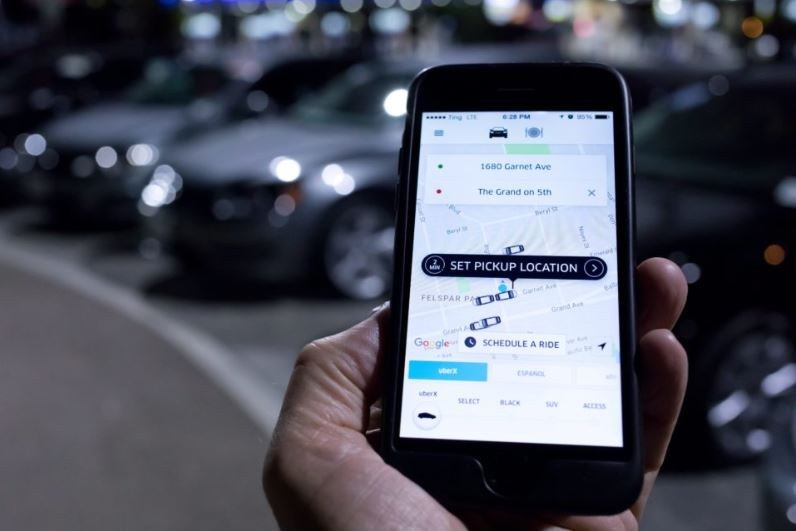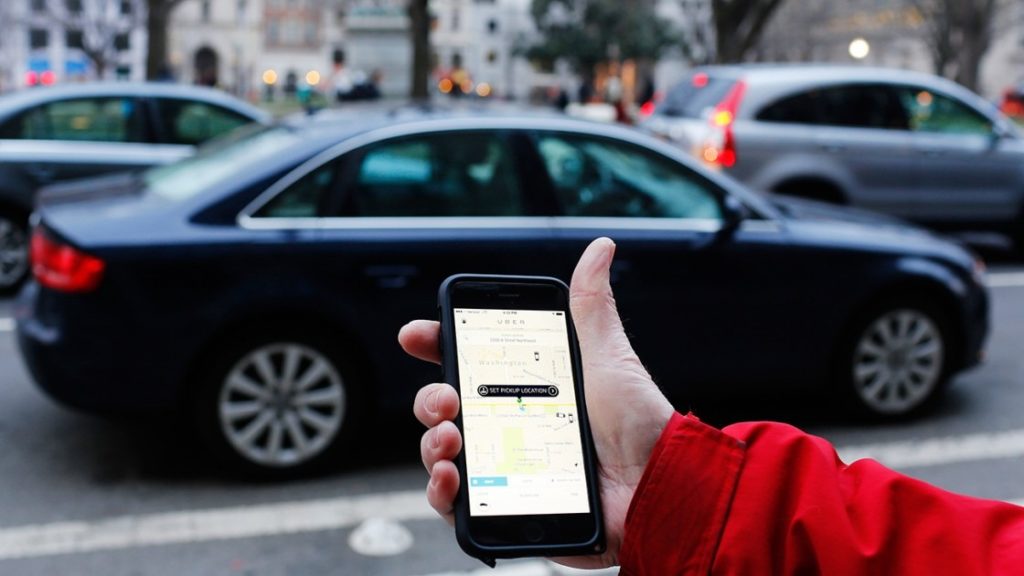On Thursday afternoon, the Brussels regional government came to an agreement on reforms to the paid passenger transport sector, which was urgently called for by Uber drivers who risk becoming jobless on Friday.
The reform agreed on aims to ensure that traditional taxis can coexist with more flexible forms of passenger transport, such as that offered by Uber, and will offer solutions both in the long term – through consultations with the sector – and in the short term through a quick ordinance in parliament, as an urgent solution was being called for.
The time constraint on this to be passed comes in light of the Brussels Court of Appeal decision announced on Wednesday evening, shutting down Uber in Brussels from Friday evening, and essentially rendering the almost 2,000 Uber drivers who work with an FVO/LVC professional licence (which is the same licence as limousine drivers and allows hiring drivers to operate private vehicles) jobless.
"This agreement creates a legally secure and reliable framework for the professional passenger transport sector (including drivers' associations) and should also guarantee a quality service adapted to the new habits of customers and users," said Brussels Minister-President Rudi Vervoort in a press release.
The main objectives of the draft ordinance are the regulation of the reservation platforms, such as Uber and Hitch, and to unify the sector with a common legal framework, while responding to demands to adapt legislation to the new habits of customers and users. It will also aim to put an end to unfair pricing competition.
“This is an important first step for the 2,000 drivers who have been waiting for reforms for seven years,” Laurent Slits, Head of Uber Belgium, said in a statement.
“We hope the government will now act quickly to consult LVC drivers and present this proposal to parliament, while also taking immediate action to secure drivers’ earnings so they can continue to provide for their families.”

Credit: Belga
In the statement, Vervoort added that FVO drivers should not be punished for a situation that was caused by Uber: "Uber itself is responsible for allowing this sector to develop while there was a legal risk that the initiative would be banned."
"In 2015, the Uber sector had 217 drivers; today there are 1,191 Uber vehicles with a Brussels licence plate. That is an increase of almost 848%. Uber has misled those people. Indeed, Uber X ran the same legal risk as Uber Pop, which was sentenced to cease operations in 2015." This same order now also applies to Uber’s current services, the Brussels Court of Appeal said.
The announcement was cautiously welcomed by the drivers' associations. "It has been more than seven years that this decision has been dragging on, now it seems that there will actually be a 'taxi plan'," Fernando Redondo of the Belgian Association of Limousine Drivers (ABCL) told The Brussels Times.
Drivers' associations called on drivers to demonstrate by standing still on Brussels' roads or driving at a snail's pace, heavily disrupting traffic. "We will be on the streets every day, every day we will blockade Brussels, just until there is a decision from the government," Redondo said earlier on Thursday.
Vervoort will be meeting with the representatives within the sector, which has only happened a few times since the upheaval regarding Uber in Brussels started, in the coming week to discuss the next steps. However, Redondo said they will only accept an "honourable taxi plan, and not just any kind of plan."
Long-awaited decision
Aside from having enormous consequences for the drivers who would essentially be made redundant from Friday at 6:00 PM, the court decision would also heavily impact hundreds of thousands of users in the capital, according to Rick Janse Kok, Head of Communications for Uber Northern Europe.
"This is also a setback because many people use it to get around within the city, and the consequences of this decision will make it very difficult for them to do so," he told The Brussels Times.
Following the court decision and ahead of Vervoort's announcement, Uber and drivers' associations argued that a reform of the taxi policy was the only real structural solution.
Related News
"The current rules date back to 1995. The government promised a reform seven years ago and in those years have vowed to do so three times already. First, it would be announced around the summer, then October, and it never happened," Janse Kok said.
Arnaud Verstraete, Groen Party leader for Brussels, told The Brussels Times that the reasons for the plan's delay were unclear.
"Vervoort said on 30 September that he was going to present his taxi plan to the government, but didn't. The delay can't be put down to the topic being sensitive and it is hard to find a consensus, as was the case with the previous government, because nothing has been put on the table for two years, any mention of a plan is only now being discussed."
Verstraete, who stressed that the plan must present a solution for flexible and traditional taxis to coexist while respecting legislation and social regulations, said temporary solutions must also be worked on so that "people don't suddenly lose jobs without any protection."
Both Vervoort and Uber stated that they are actively seeking a temporary solution to the situation created by the judgment.

